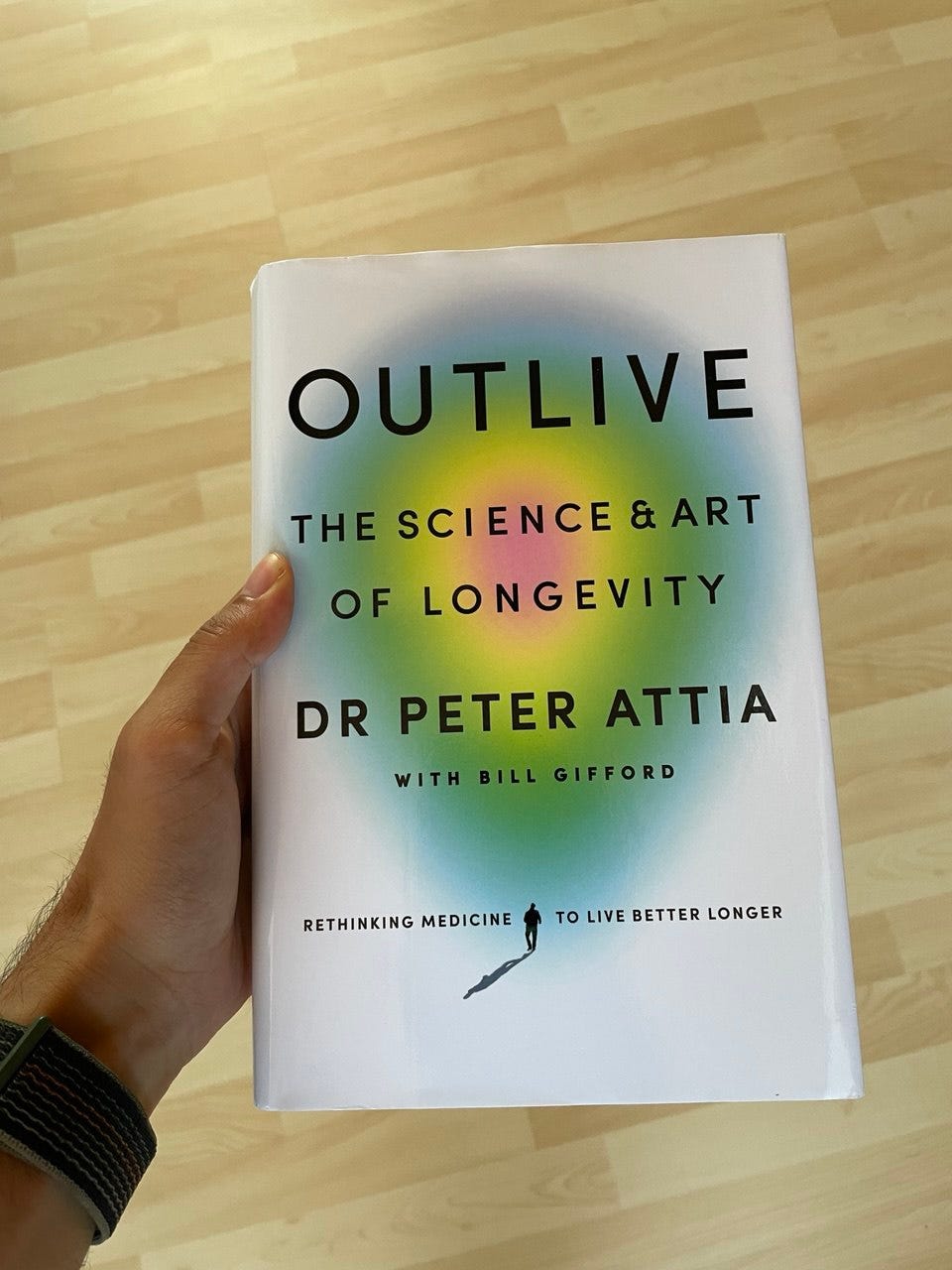This newsletter is slightly different from the previous ones. This is part of the Book Club serries where we deep dive into books about nutrition, health and longevity. The first entry of this series is about the book OUTLIVE by Dr. Peter Attia.
Attia argues that our current healthcare model (“Medicine 2.0”) is reactive, waiting for disease to emerge before treating it - whereas Medicine 3.0 shifts emphasis toward personalized prevention and risk management. Rather than accepting “normal” population averages as optimal, Medicine 3.0 starts with an honest assessment of individual risk factors (genetics, family history, biomarkers) and uses continuous data to guide interventions before illness takes hold. This aligns with Naia’s mission: meeting you where you are, then tailoring nutrition, movement, and recovery protocols to your unique profile.
The Four Horsemen of Premature Death
Attia identifies four interrelated chronic diseases: cardiovascular disease, cancer, neurodegeneration (e.g., Alzheimer’s), and metabolic dysfunction (e.g., type 2 diabetes). These are the “Four Horsemen” threatening modern longevity. These conditions often amplify one another: insulin resistance (metabolic) can fuel inflammation (cancer), while poor cardiovascular fitness exacerbates neurodegenerative risk. By understanding how these horsemen interact, we can target lifestyle factors (diet, exercise, sleep) to blunt their collective impact.
Rather than prescribing endless cardio or punishing HIIT, Attia breaks down exercise into four complementary categories:
Stability/Mobility (daily joint health and posture drills)
Strength Training (preserve muscle mass and power)
Zone 2 Aerobic (sustainable, moderate-intensity work for mitochondrial health)
High-Intensity Interval (boost VO₂ max and resilience)
Naia’s “move with purpose” philosophy maps directly onto this framework: simple daily mobility flows, two strength sessions per week, weekly Zone 2 rides or jogs, plus short HIIT bursts—structured to fit busy schedules and maximize longevity dividends.
In the book, it is stressed several times that insulin management is central to metabolic health. Attia advocates:
Minimize ultra-processed carbs that spike glucose and insulin
Optimize protein intake to sustain muscle and immune function
Time-restricted feeding (e.g., 10–12 h eating window) to improve metabolic flexibility gq.com.
Attia highlights sleep quality as a non-negotiable pillar: adequate duration, regular timing, and light-optimized environments to support hormonal balance and cognitive repair. He also redefines stress: distinguishing between “risk” (measurable threat) and “fear” (emotional response), and emphasizing mental resilience techniques (mindfulness, journaling, cold exposure) to manage chronic stressors that accelerate aging.
One of Attia’s most powerful lessons is measure to manage. He encourages tracking biomarkers (lipoprotein (a), glucose variability, inflammatory markers) and performance metrics (VO₂ max, grip strength) to detect small declines early and course-correct swiftly.
By weaving together Medicine 3.0’s preventive focus, the Four Horsemen framework, a balanced exercise blueprint, nutrition for metabolic harmony, robust sleep and stress resilience, and data-driven decision-making, Outlive offers a roadmap to not just adding years to life, but life to years. At Naia, we’re building the guides, recipes, tools, and community to make these strategies practical, sustainable, and—above all—life-affirming.
Join our Substack for deep-dives, recipe swaps, workshop invites, and community Q&As. Let’s redefine what longevity means—together.






